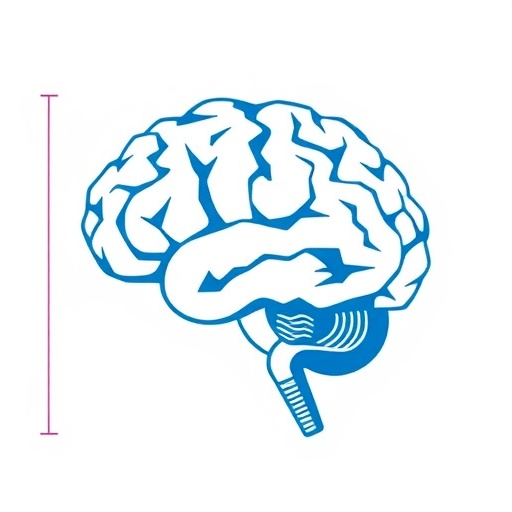In a groundbreaking study set to be published in 2025, researchers have unveiled significant insights into the bidirectional relationships between disability and cognitive decline. This comprehensive 6-year longitudinal study, led by prominent figures in the field including Hung, Wang, and Chou, marks a pivotal moment in geriatric research, seeking to understand how these two factors influence each other over time. The findings promise to reshape our understanding of aging and mental health, potentially leading to new interventions and support systems for the elderly.
Disability and cognitive decline are major concerns as populations globally age. Previous studies have hinted at a correlation between the two, suggesting that individuals coping with physical disabilities could suffer from cognitive impairments. However, the intricate nature of their relationship remained largely unexamined. Hung and colleagues sought to address this gap, employing a robust research methodology and a diverse sample population to yield conclusive evidence.
The researchers conducted extensive assessments, gathering data from over a thousand participants aged 65 and older. These assessments included detailed cognitive testing and evaluations of physical health. Participants were monitored every six months, providing a wealth of information that allowed the researchers to analyze trends and changes over time. The result is a nuanced understanding of how disability can influence cognitive function and, conversely, how cognitive decline may exacerbate physical frailty.
One of the most compelling aspects of this study is the concept of feedback loops between cognitive decline and the advent of disability. The data indicated that as cognitive abilities waned, the risk of developing physical disabilities increased. This relationship was particularly evident in tasks that required executive functioning and processing speed, which are critical for maintaining physical health and mobility. The findings suggest that cognitive interventions may play a role in preventing or mitigating some disability risk factors in elderly populations.
Moreover, the team identified that individuals suffering from increased disability levels also faced a higher likelihood of cognitive decline over the study duration. Participants who rated their physical health as poor were notably at risk of experiencing rapid cognitive deterioration. This highlights the need for healthcare providers to adopt a holistic approach to elderly care, addressing both physical and mental health concurrently.
The study used advanced statistical models to analyze the collected data, ensuring accuracy and reliability in its findings. Researchers adjusted for confounding variables such as socioeconomic status, pre-existing conditions, and lifestyle factors. This rigorous methodology strengthens the argument for the causative links established in their results and lays a foundation for future research into preventive measures.
The implications of this study extend beyond academia; they resonate deeply within policy-making and public health initiatives. As populations age, understanding the interconnectedness of cognitive health and physical disability will be crucial for developing effective aging strategies. This research could guide policymakers in creating targeted programs that prioritize mental health support for disabled individuals or those at risk of cognitive decline.
There is also a critical need for further exploration into effective interventions that could disrupt the cycle of cognitive decline and disability. The findings from Hung and colleagues pave the way for clinical trials aimed at designing therapeutic programs that integrate cognitive training and physical rehabilitation. Such integrated programs could help seniors maintain their independence and improve their quality of life as they age.
Furthermore, this study highlights the urgent need for increased awareness of cognitive health and its importance in managing physical disabilities. Health educators and caregivers should be trained to recognize the signs of cognitive decline early, enabling timely interventions. Regular screenings for cognitive impairments in elderly care settings can inform better treatment plans that cater to the complex interplay of mind and body.
In summary, the longitudinal study led by Hung, Wang, and Chou advances our understanding of how disability and cognitive decline can influence one another over time. By illustrating the bidirectional nature of this relationship, the research establishes a vital foundation for future inquiries and practical applications in geriatric care. This work not only amplifies the voices of seniors but also reinforces the importance of interdisciplinary approaches to health care as society increasingly confronts the challenges of an aging population.
As the academic community anticipates the full publication of this study, it is poised to make a significant impact on how we approach aging research, emphasizing the need for strategies that encompass both cognitive and physical health. As we delve deeper into these intricate relationships, the hope is that future generations of seniors will enjoy a better quality of life, characterized by both physical vitality and cognitive resilience.
By shedding light on the dynamic interplay between disability and cognitive decline, researchers are taking essential steps toward addressing one of the most pressing issues facing our aging societies. This upcoming study acts as a clarion call for a paradigm shift in how we perceive, study, and ultimately support the aging population.
Subject of Research: The bidirectional relationships between disability and cognitive decline.
Article Title: Bidirectional relationships between disability and cognitive decline: a 6-year longitudinal study.
Article References: Hung, TH., Wang, TY., Chou, HC. et al. Bidirectional relationships between disability and cognitive decline: a 6-year longitudinal study. BMC Geriatr 25, 889 (2025). https://doi.org/10.1186/s12877-025-06511-6
Image Credits: AI Generated
DOI: https://doi.org/10.1186/s12877-025-06511-6
Keywords: disability, cognitive decline, geriatric health, longitudinal study, elderly care, mental health, physical health, aging populations, interventions.




